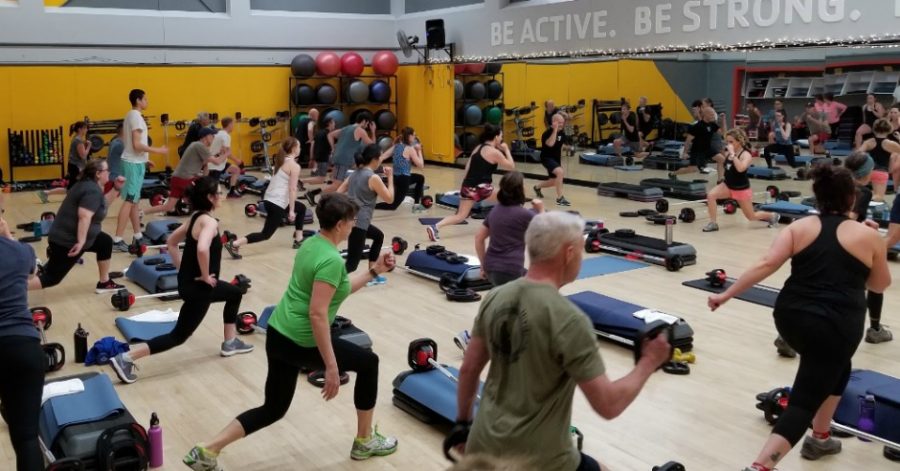|
SEARCH My Blog (Opens in new tab)
Adaption is your friend, and your enemy
Adaption is a fantastic thing. Your body works quickly to help you survive longer. But this leads to stagnation in your exercise gains if your goal is more than just survival.
The way to beat adaption is to keep applying healthy stress to your brain and body. This type of “confusion” means that our body does not know what it is trying to survive for - and it has to keep catching up with the new demands. When I started to exercise - after being diagnosed with Type 2 diabetes - - the improvements came relatively quickly. I lost about half a kilogram each month, the exercise became less tiring, and I could feel that I was regularly gaining a little extra strength. Back then, 20 years ago, I had no idea my body was working against me, to make me so efficient that my progress would plateau. Progress slows
It was only when I joined a Bodypump class, about 2 years after starting at the gym, that I noticed how quickly the effort levelled out.
After 5 or 6 weeks the effort was far less. This was my body telling me that it had optimised what was expected of it. Luckily the Bodypump program changes their "release" every 6 weeks or so for exactly this reason - to shock the body back into working harder. I also learnt about "progressive overload" - to keep on adding weight to your bar, in small increments. This also keeps your body guessing and having to get out of its comfort zone and start adding strength again. After a couple of years of Bodypump, I had great results. I was much stronger, looked more conditioned, and had a better body composition. But for most of the class, this was not the case. I observed that most of the class had not changed in that same period. They looked far better than when they started, but they stagnated after 6 months. That's because they kept the same comfortable loads on their bars - no progressive overload. Even though they benefited from the changing "releases" of exercises, their bodies became very adapted to the general style of training. This meant that the energy and nervous effort required of them each week was dropping away. Their bodies were becoming very efficient at doing what was needed with the least energy and adaption. Your body perceives your goals from your activity
Here's the point, your body will do the maximum it can achieve to help you survive for as long as possible. The body interpolates our regular activity into long-term survival goals.
The universal factors which your body adapts are these:
Each of these adaptions can be both positive and negative. If you do the same weight training for months on end, then the muscles become so efficient that they are no longer stressed, and stop developing. There's no harm, but you may become disappointed by the lack of gains. You can shock your system with movement variations or using cable machines or even bodyweight exercises for a period. If you run at the same pace all the time, then the aerobic and muscular adaptions reach a peak and stop (1,2, and 3 above). If you have goals for time or distance, you may become disappointed that you're not making progress. You can shock your stable system with interval training to improve your times. Adaptions #4, #5, and #6 are where problems can occur and the most important reason for you to keep your body guessing. For example, if you mainly just run then your body assumes that you want to run longer and use your energy more efficiently. It sheds muscles that add weight but are not needed to run further and sheds bone mass for the same reasons. That's what happens if you do a disproportionate amount of "cardio" and especially the running machines. Women tend to do this, and yet they should be doing everything possible to avoid bone loss. The same problem arises if you mainly cycle, but even worse because you are not carrying your body weight with your skeletal system. In a test of bone density among professional athletes, professional cyclists ranked the lowest of all. If you are a woman, that's highly undesirable. Mix it up
In fact, cycling is a spectacular way to illustrate the power of adaption. Have you had that experience where you are riding your bike - as a casual bike rider - and been quickly passed by someone who does not look too healthy? If you saw them off the bike, you'd think that they need to do some exercise and pay attention to their weight?
That's because their body has adapted to be very efficient on a bike, even though they don't look great elsewhere. The answer for regular runners and cyclists is to do complementary exercises which rebuild their muscularity and skeletal strength. Typically those are resistance exercises including bodyweight exercises. For all of us, the lesson is that our body is continuously working to help us achieve what it perceives to be our goal - based on our regular patterns of exercise. This can not only limit our gains but also have adverse consequences for our overall muscle mass and bone mass (and density). There are exceptions. If you are a pro and work to the extreme of adaption e.g. pro cyclist or pro lifter, then this can only be achieved after the neurological adaptions are stabilised. You can’t mess with them too often. But you know what to do. For the rest of us - mix it up. Get variations into your program and activities, and enjoy the new feeling of rewiring your body every six weeks or so.
Follow me on Quora for more health and fitness tips.
If you enjoyed this article >> Follow me Leave a comment >> Share it >> Stay healthy If you have any questions email me and I will get back to you.  RSS Feed RSS Feed
Latest: get your free customised fitness plan designed uniquely for you.
|
ChoicesSince I was diagnosed at 50 with Type 2 diabetes I've been learning how to do bone-building fitness training which lowers my age. You can too. It's your choice. Walter Categories
All
Archives
May 2023
|





